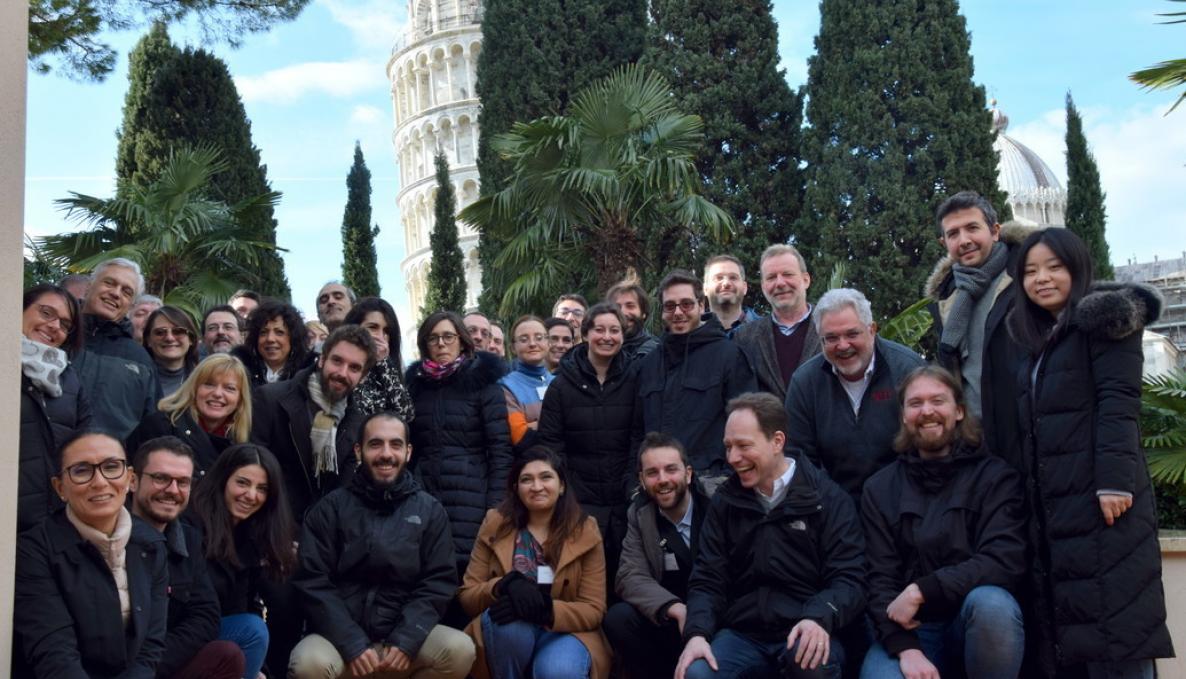BIO-INSPIRED ROBOTICS: RESEARCHERS OF SANT'ANNA SCHOOL BIOROBOTICS INSTITUTE PARTICIPATE IN EC-FUNDED PROJECT GROWBOT TO CREATE CLIMBING PLANTS-INSPIRED ROBOTS

Climbing plants, including perennial vine Ivy and Clematis, possess high tensile strength and flexibility for rapid growth. Ivy and Clematis use minimal resources for vertical growth and support. Their climbing strategies and adaptability have inspired the IIT (Italian Institute of Technology) scientists working on the four-year GrowBot project funded by the European Commission with nearly 7 million euros. The European Union's Horizon 2020 framework programme for research and innovation under the FET actions will explore the role of robotics and artificial intelligence (AI) to promote sustainable development, circular economic models, and processes optimization. The consortium behind the GrowBot project plans to develop a cluster of biologists and roboticists for bio-inspired design that addresses urban infrastructure issues and biomimicry applications fostering innovative city paradigms like the ‘smart’ city.
The Sant’Anna School Biorobotics Institute has joined the GrowBot Consortium including the research team led by Professor Cecilia Laschi, the GSSI Gran Sasso Science Institute, and the Linari Engineering Srl Company.
Barbara Mazzolai of IIT is the GrowBot project coordinator. In 2012, she supervised the Plantoid project producing plant-like robots that mimic the properties of plant roots. This new GrowBot project will focus on low mass and low-volume robots capable of anchoring themselves, negotiating voids, and climbing through the perceived external stimuli. Morphological change and the ability to grow will be translated by depositing new materials with multi-functional properties to form flexible or rigid structures. The control of dynamic mechatronic systems, bionic sensor and actuator technologies will allow different applications of the devices in the urban environments.
“Plants as living organisms are a source of inspiration for engineering simulation. We aim to comprehend the full complexity of their biological lightweight constructions for applications that range from wearable technologies to the development of flexible robots for exploration. Soft robots easily adaptable to the surrounding environment have the potential for enhanced and safe interactions with objects or living beings”, said Barbara Mazzolai, as the GrowBot project coordinator at the IIT Micro-Robotics Centre in Pontedera, Pisa.
IIT scientists Barbara Mazzolai in Pontedera and Nicola Tirelli in Genova will work on manoeuvrable, resilient and energy efficient plant robots to get them to move in a 3D space. They will also design dynamic mechatronic systems emulating intelligent biological systems. Scientists propose the development of intelligent and autonomous controllers able to make reasonable predictions about their dynamic behaviour in the adaptation to the environment changes.
The research team led by Cecilia Laschi of Sant’Anna School Biorobotics Institute will work on advanced control algorithms for mobile robots. The research team led by Pierangelo Marcati at the GSSI Gran Sasso Science Institute will focus on mathematical modelling of climbing plants adaptive behaviours. Stefano Linari of Linari Engineering Srl, will use nanotechnology to develop and produce advanced nanofibers allowing efficient energy storage.
To support the GrowBot four-year project, two research grants for postdocs in Bioinspired Soft Robotics field are offered. A dedicated plan for dissemination and exploitation of project activities and results will be carried out to engage in dialogue with the relevant stakeholders and the public. At the end of the project, workshops and events will take place across Italy and Europe.
The GrowBot Consortium gathers 9 partners: IIT-Istituto Italiano di Tecnologia, SSSA- Scuola Superiore Sant’Anna, GSSI - Gran Sasso Science Institute, Linari Engineering Srl, HZG- Helmholtz-Zentrum Geesthacht Zentrum Fur Material Und Kustenforschung (Teltow, Germania), Albert-Ludwigs-Universität Freiburg (Fribourg, Germany), Tel Aviv University (Tel Aviv, Israel), CNRS-Centre National De La Recherche Scientifique (Montpellier, France) and Arkyne Technologies SL (Barcelona, Spain).



